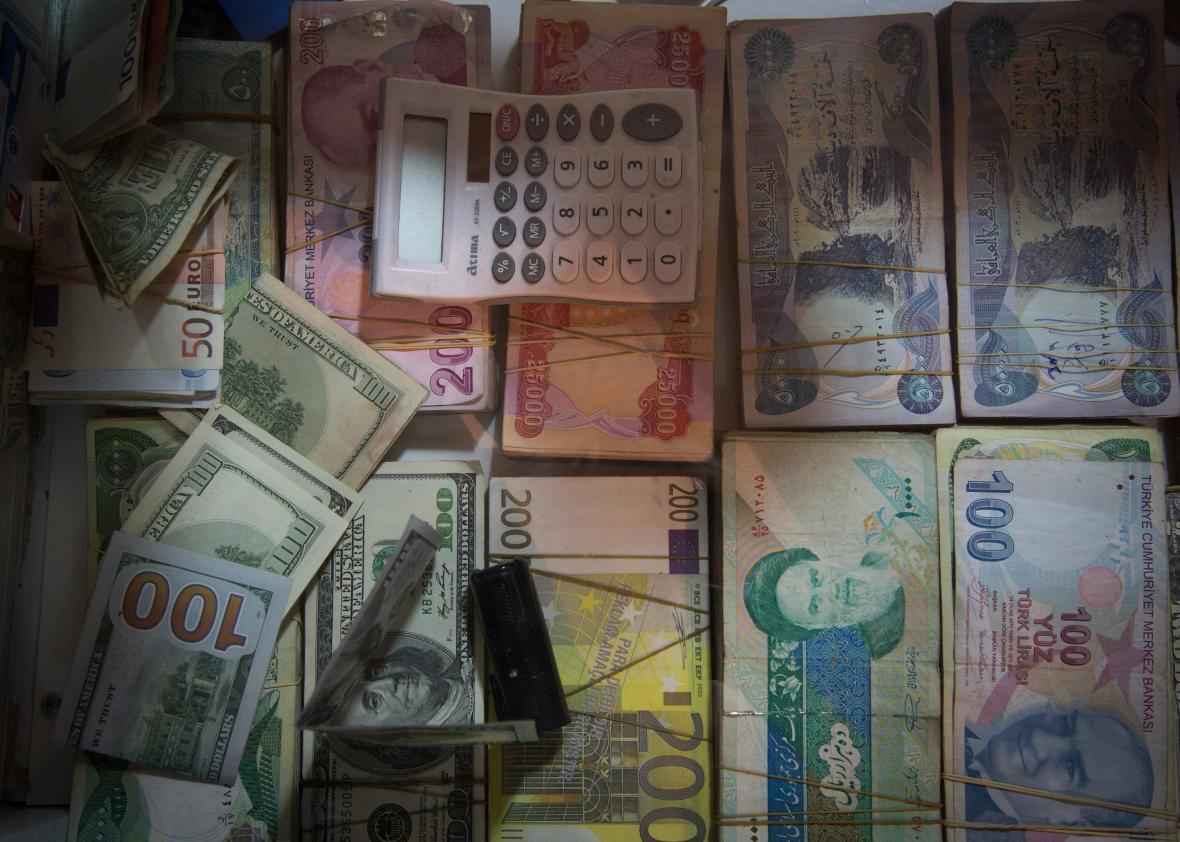ISIS may threaten violence against the United States and aim to rid the Islamic world of U.S. influence and U.S.-backed regimes, but if you want to do business in the group’s ersatz caliphate, you’d better have money backed by the full faith and credit of the U.S. government:
The AP reports :
Within the last two weeks, the extremist group started accepting only dollars for “tax” payments, water and electric bills, according to the Raqqa activist, who asked to be identified by his nom de guerre Abu Ahmad for his safety. “Everything is paid in dollars,” he said.
Plenty of countries around the world use the dollar either exclusively or accept it in addition to a local currency. Given the other fruits of Western capitalism, from Toyota trucks to Twitter, that ISIS has put to its own uses, perhaps it shouldn’t be so surprising that the group relies on the greenback.
Still, it’s a change of heart. In late 2014, ISIS announced plans to mint its own gold, silver, and copper Islamic dinar coins with a design overseen by Abu Bakr al-Baghdadi himself, as a way of moving away from the “tyrant’s financial system.” Turkish police arrested six suspected ISIS members for minting ISIS coins in the city of Gaziantep in October 2015.
The currency plan seems to have never gotten off the ground. The AP reports that the new “dollars only” rule come along with another pay cut for ISIS fighters and the elimination of benefits and perks, from bonuses to “free energy drinks and Snickers bars.” The group’s finances have reportedly been battered by its loss of territory and airstrikes against its cash stores and oil fields as well as the Iraqi government’s decision to stop paying civil servants in areas controlled by the extremists, which reduces the potential money ISIS can collect in taxes. Plummeting global prices have also reduced ISIS’s income from its black market oil.
All that sounds promising, but we’ve been seeing stories predicting ISIS’s imminent financial collapse for at least a year. It’s still hanging on.
